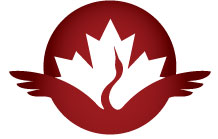[On June 4, 2013, I was called as a witness to testify before the House of Commons Standing Committee on Foreign Affairs and International Development. Below is the entirety of my prepared statement – I believe, there were some off the cuff remarks that probably drove the French language interpreters nuts.]
 Good afternoon, ladies and gentlemen of the Committee. Thank you for inviting me today to speak. As I wear several hats when it comes to North Korea, whether it is HanVoice, www.cankor.ca, or the North Korean Human Rights Film Festival Toronto, on behalf of all these organizations, I again extend my thanks.
Good afternoon, ladies and gentlemen of the Committee. Thank you for inviting me today to speak. As I wear several hats when it comes to North Korea, whether it is HanVoice, www.cankor.ca, or the North Korean Human Rights Film Festival Toronto, on behalf of all these organizations, I again extend my thanks.
Canada’s DPRK Policy: Controlled Engagement
Canada’s response to North Korea has been, at least rhetorically, aggressive. Since 2010 our government has pursued what has been termed a “Controlled Engagement” policy. The Controlled Engagement (“CE”) policy restricted bilateral contact with the regime except to four distinct areas: regional security concerns, human rights and the humanitarian situation, inter-Korean relations, and consular issues. It also forbid Canadians from importing and exporting anything into North Korea, and also introduced strict technology and investment sanctions. Read the rest of this entry »





 For a little more than a decade starting with the end of the Cold War in Europe Canada was an engaged, proactive and sometimes innovative player in multilateral security issues in Northeast Asia. It initiated the North Pacific Cooperative Security Dialogue between 1990 and 1993, a pioneering track-two process including the principal six in Northeast Asia plus Canada and Mongolia intended to lay the foundation for an inclusive regional process in a region re-framed as the North Pacific. It pursued an “engagement without illusions” approach to North Korea that included encouragement of multiple levels of academic and NGO connections and eventually led in 2001 to the establishment of diplomatic relations. The government provided financial assistance to KEDO and supported diplomats and academics in multiple track-two meetings on a multilateral and bilateral basis that focused on regional frameworks and initiatives, including on arms control, missile defense weaponization of space, and non-proliferation.
For a little more than a decade starting with the end of the Cold War in Europe Canada was an engaged, proactive and sometimes innovative player in multilateral security issues in Northeast Asia. It initiated the North Pacific Cooperative Security Dialogue between 1990 and 1993, a pioneering track-two process including the principal six in Northeast Asia plus Canada and Mongolia intended to lay the foundation for an inclusive regional process in a region re-framed as the North Pacific. It pursued an “engagement without illusions” approach to North Korea that included encouragement of multiple levels of academic and NGO connections and eventually led in 2001 to the establishment of diplomatic relations. The government provided financial assistance to KEDO and supported diplomats and academics in multiple track-two meetings on a multilateral and bilateral basis that focused on regional frameworks and initiatives, including on arms control, missile defense weaponization of space, and non-proliferation.



